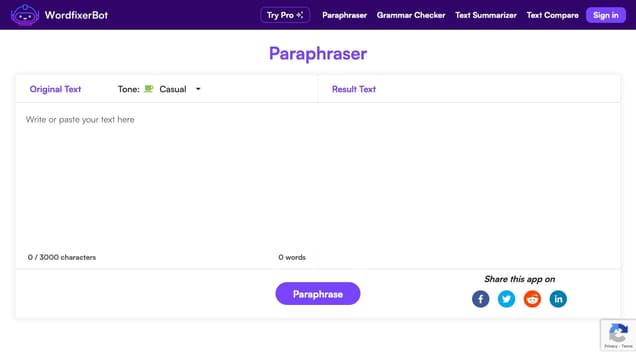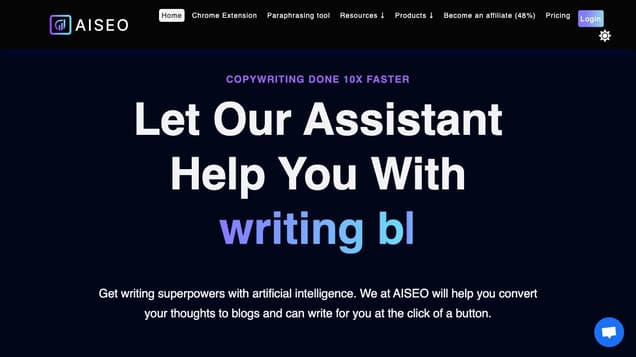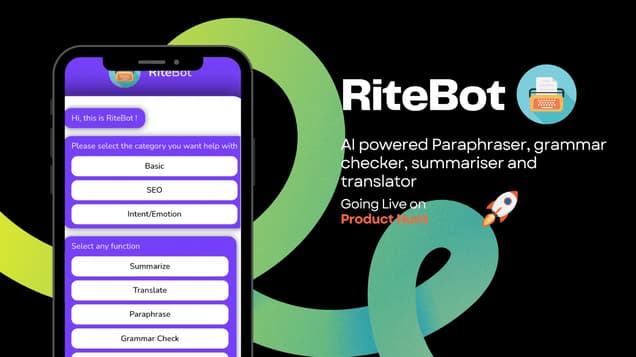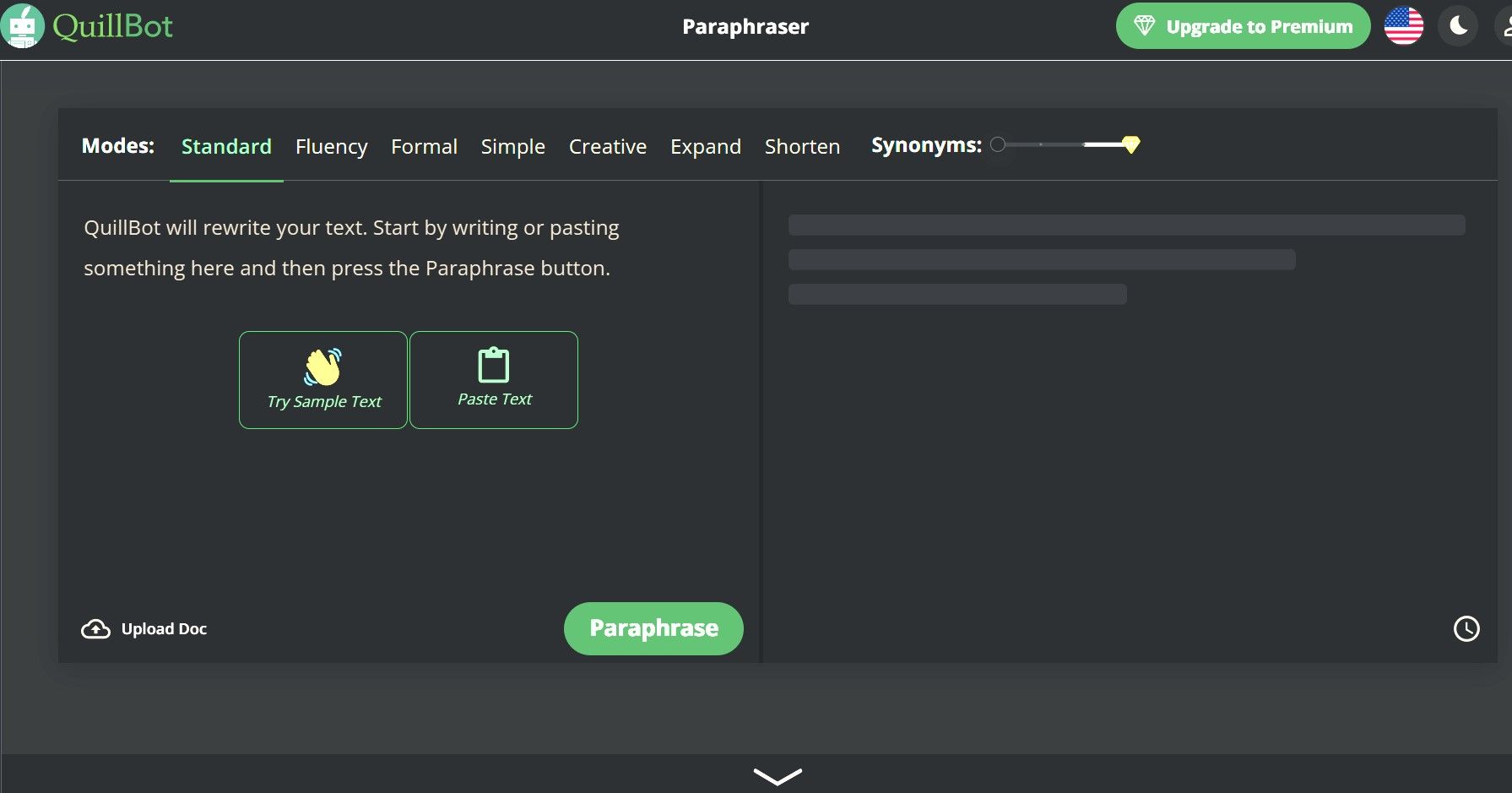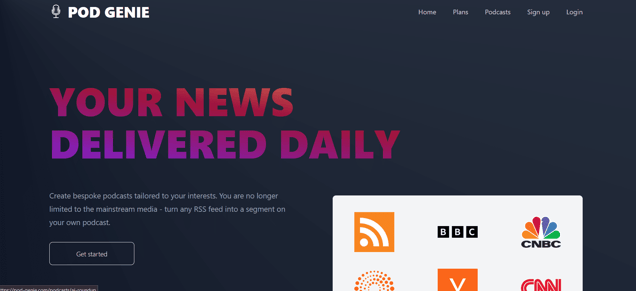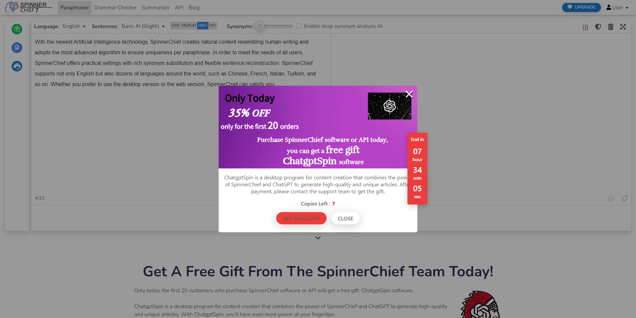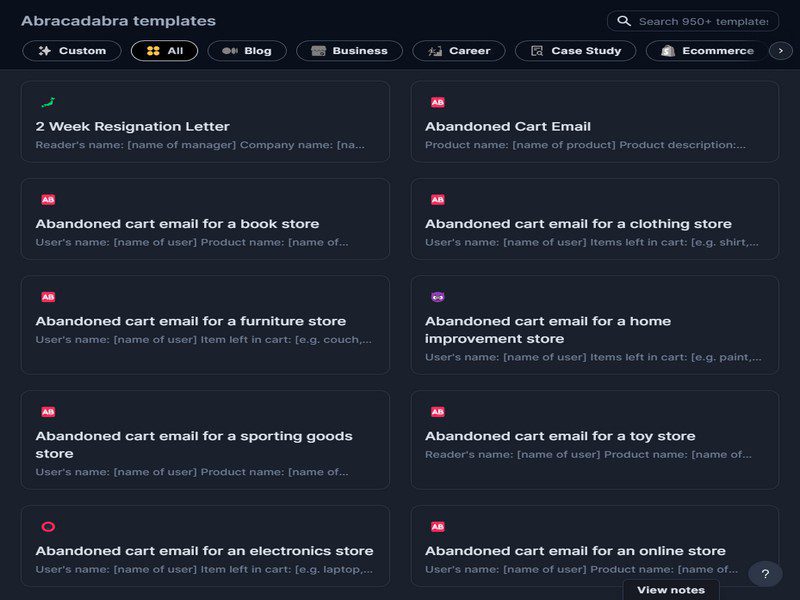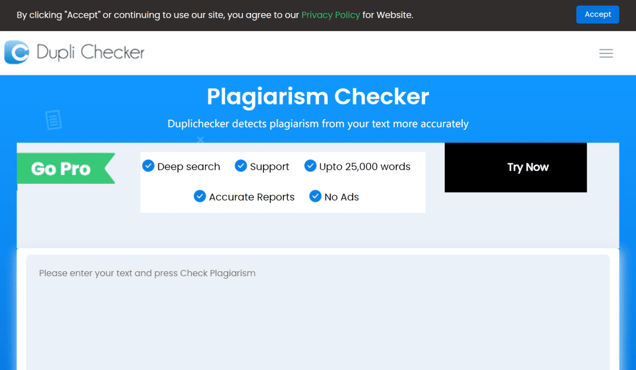
What is Duplichecker?
Duplichecker is a user-friendly plagiarism detection tool that assists businesses and individuals in safeguarding their written works from unauthorized copying. By utilizing Duplichecker, users can effortlessly verify the originality of their content, ensuring that it is free from plagiarism. This tool scans documents and compares them against a vast online database, enabling users to identify any potential instances of plagiarism. Additionally, Duplichecker generates a comprehensive report that highlights the sources used in the document, ensuring proper attribution of quoted text. With its ease of use and efficiency, Duplichecker saves users valuable time and effort by quickly scanning for any potential plagiarism. This service is particularly beneficial for businesses and organizations that create substantial amounts of written content, such as blog posts, press releases, and website content.
Information
- Price
- Contact for Pricing
Freework.ai Spotlight
Display Your Achievement: Get Our Custom-Made Badge to Highlight Your Success on Your Website and Attract More Visitors to Your Solution.
Website traffic
- Monthly visits8.18M
- Avg visit duration00:03:41
- Bounce rate43.15%
- Unique users--
- Total pages views24.25M
Access Top 5 countries
Traffic source
Duplichecker FQA
- What services does Duplichecker provide?

- Are there any limitations on file formats for uploading text?

- Does Duplichecker save the uploaded material?

- Does Duplichecker support multiple languages?

- What additional features does Duplichecker Premium offer?

Duplichecker Use Cases
Checking for plagiarism in academic papers and articles to ensure originality and avoid copyright infringement.
Verifying the uniqueness of website content to improve search engine rankings and avoid penalties.
Detecting duplicate content in blog posts and online articles to maintain credibility and avoid plagiarism accusations.
Comparing research papers and journal articles to identify similarities and ensure proper citation and referencing.
Checking the originality of essays and assignments submitted by students to prevent cheating and ensure academic integrity.
Verifying the authenticity of product descriptions and marketing content to avoid misleading customers and potential legal issues.
Detecting plagiarism in online publications and news articles to maintain journalistic integrity and avoid copyright infringement.
Comparing website content with competitors' to identify similarities and differentiate the brand's messaging.
Verifying the uniqueness of social media posts and captions to maintain originality and engage followers.
Checking the originality of creative writing pieces, such as novels and short stories, to protect intellectual property rights.

